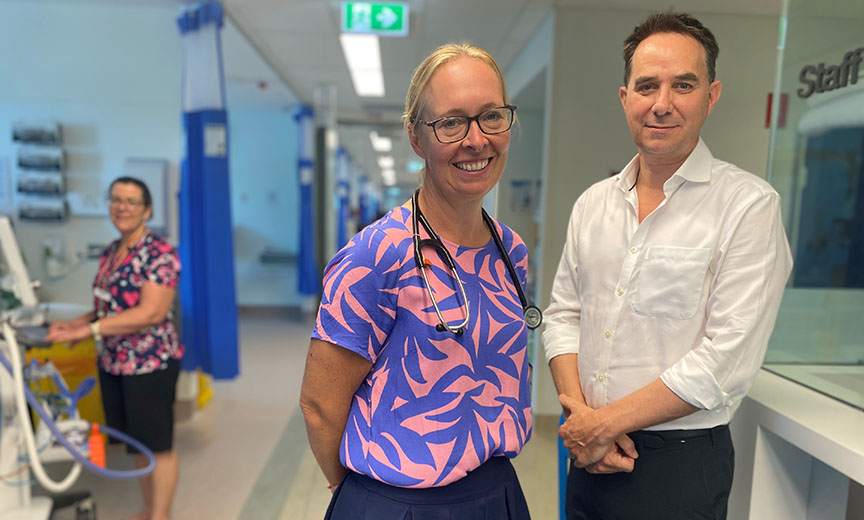
Survival rates for rare tropical disease melioidosis in Cairns Hospital are now among the best in the world on the back of cutting-edge treatment and growing public awareness, a new research study has found.
The potentially deadly bacterial infection is found in the soil and surface water in tropical regions making people in Far North Queensland at greater risk. The infection is usually seen in patients with underlying health conditions such as diabetes which increases the risk of the life-threatening infection.
There have been over 500 cases of melioidosis in the region over the past 25 years and the number of cases managed at Cairns Hospital is increasing every year.
Melioidosis can lead to sepsis – overwhelming infection – that, without appropriate treatment, can kill someone within hours.
Cairns and Hinterland Hospital and Health Service infectious disease specialist Dr Josh Hanson said their research had found that in the past five years almost 90% of the cases admitted to the Intensive Care Unit with melioidosis survived their infection.
This was compared with more than half of the 14 cases admitted to the ICU between 1998-2002 who tragically died.
‘This study looked at 119 cases which required admission to ICU in Cairns Hospital between 1998 and 2023 and showed a very clear increase in the number of cases, but a sharp decline in the number of cases that proved fatal,’ Dr Hanson said.
‘Because we are seeing more cases our doctors are recognising it earlier and starting appropriate antibiotics promptly.
‘Major advances in the management of sepsis have also significantly improved the survival of people with melioidosis requiring ICU care in FNQ over the last 25 years.
Dr Hanson said that globally, over 40% of individuals diagnosed with melioidosis will die. The overall mortality rate of melioidosis in FNQ - now below 10% - was one of the lowest in the world.
He undertook the study alongside Cairns Hospital ICU Clinical Director Dr Catherine Tacon and other staff and will present his research findings at the CHHHS Research and Innovation Symposium in Cairns on Friday.
Dr Hanson said with wet season approaching it was a timely reminder for local residents to protect themselves by avoiding gardening in wet weather, wearing protective clothing when working somewhere muddy and ensuring cuts and sores were covered.
‘Melioidosis is rare in healthy adults and children. Most people exposed to the bacteria do not get sick,’ he said.
‘People who do become unwell often get a lung infection such as pneumonia and if they not treated quickly, the infection could spread to other areas of the body. This can cause sepsis and – even in Australia’s well-resourced health system – death.’